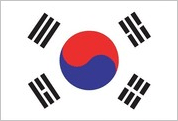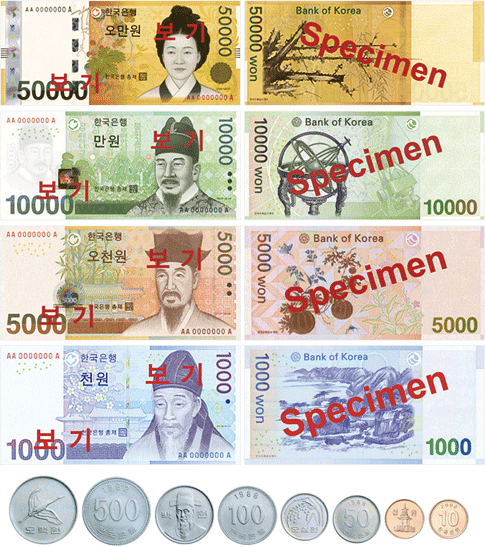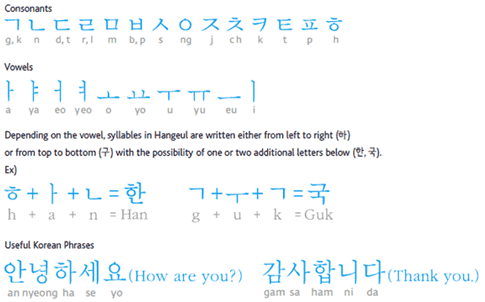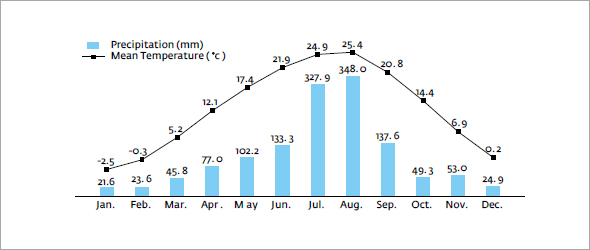
The Republic Of Korea is a small country on the far eastern edge of Asia.
Although it ranks 109th in the world in terms of land area, the country is a center of economic activity, culture, and arts. Korea was colonized by Japan in the early 20th century and later had to endure the Korean War (1950-53), but it has achieved amazing economic growth in a short period, dubbed "the Miracle on the Han River."| Country Name | Republic of Korea (South Korea) | |||||||||||||||||||||||||||
|---|---|---|---|---|---|---|---|---|---|---|---|---|---|---|---|---|---|---|---|---|---|---|---|---|---|---|---|---|
| Capital City | Seoul (10.4 million) (2010) | |||||||||||||||||||||||||||
| National Flag |  Taegeukgi Taegeukgi |
|||||||||||||||||||||||||||
| National Flower | Mugunghwa (Rose of Sharon) | |||||||||||||||||||||||||||
| Currency |  won won |
|||||||||||||||||||||||||||
| Language | Korean (Writing system: Hangeul) Thanks to Hangeul, Korea has achieved a nearly 100% literacy rate. The scientific and easy-to-write alphabet has also given the country an edge in the computer age |
|||||||||||||||||||||||||||
| Population | 48.87 million (South Korea) (2010) * Foreign Residents (including short-term sojourners) : 1.2 million * Cities by Population: Seoul (10.4 million), Busan (3.6 million), Incheon (2.7 million), Daegu (2.5 million), Daejeon (1.5 million), Gwangju (1.4 million), Ulsan (1.1 million) (2010) |
|||||||||||||||||||||||||||
| Religion | A 2005 census showed one half of the population practice religion. Among them, 10,726,463 Buddhists, 8,616,438 Protestants, and 5,146,147 Catholics comprise the three dominant religions. | |||||||||||||||||||||||||||
| Political System | Republic with a president elected to a single 5-year term by direct popular vote. Division of power among the executive, legislature (unicameral National Assembly), and judiciary branches | |||||||||||||||||||||||||||
| Gross Domestic Product | US$ 1,014 billion (2010) | |||||||||||||||||||||||||||
| Climate and Weather |  Different sceneries depends on four different seasons The country has a continental climate of very cold, dry winters and very hot, humid summers. Winters are influenced by westerly winds from Siberia and the Mongolian plateau, while summers are generally characterized by an oceanic climate due to moist, warm winds from the Pacific Ocean. Korea has four distinct seasons, though spring and autumn tend to be short. Spring comes in early April and lasts throughout May. The hot and humid summer begins in June and lasts about four months. The summer rainy season lasts from the end of June to mid July. Summer ends in late September, giving way to crisp, clear autumn days that last until the end of October. It becomes colder in November, and a very cold, bleak winter sets in during December and lasts until the end of February. Monthly Mean Temperature and Precipitation in Seoul  Source: Korea Meteorological Administration |
|||||||||||||||||||||||||||
| Holidays |
|